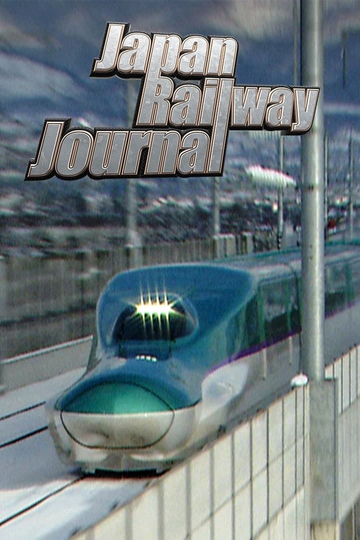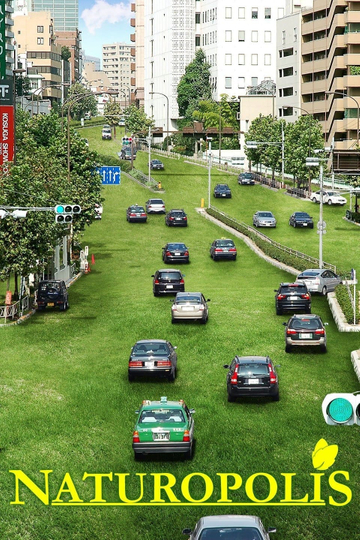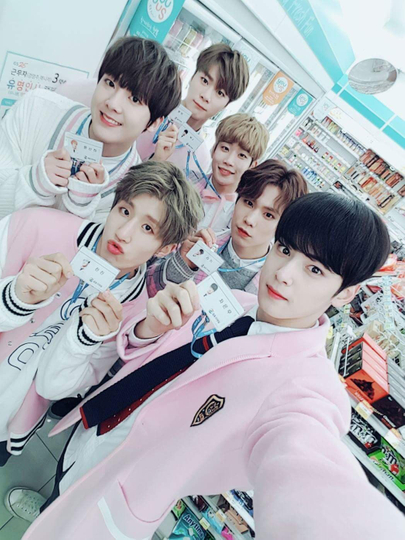Season 4 Episodes
1. Driving Forward With Steam: Oigawa Railway's Strategy
The Oigawa Railway began operating Japan's first preserved steam locomotive in 1976, and has been a pioneer in the field ever since. Now the company operates 4 steam trains that run more than 300 days a year. Join us as we discover the amazing efforts that make this possible, from their popular "Thomas the Tank Engine" service which has been gaining attention in recent years, to the vital inspections and repairs expertly carried out at the company's own workshop.
2. Hokuriku Shinkansen Update: Re-assessing the Effects and Challenges 3 Years On
In 2015, the Hokuriku Shinkansen connected between Tokyo and Kanazawa. 3 years on, hotel construction around Kanazawa terminal is ongoing, tourist numbers have increased and the number of luxury liners stopping at Kanazawa Port has tripled. Meanwhile, the number of people visiting nearby Toyama City has decreased and the city is working hard to attract more visitors. See the economic effects of the Hokuriku Shinkansen after 3 years.
3. JR OITA CITY: The Station Complex that Changed the Game
The 21-story "JR OITA CITY" complex, with over 200 stores, opened at JR Kyushu's Oita Station in 2015. Thanks to this new shopping complex, ridership has increased significantly, positively affecting shops and businesses in the area. See how JR Kyushu worked together with the local community to successfully revitalize the region. In Hands-on Railway History, we also discover the historical BUNGOMORI ROUNDHOUSE MUSEUM, a significant part of Japan's Heritage of Industrial Modernization.
4. Enoshima Electric Railway: A Good Old 10km Ride
Enoshima Electric Railway is a 10km local line connecting Kamakura and Fujisawa Stations via Enoshima Station. About 18 million people visit the railway annually. Along the line are famous tourist destinations such as Kamakura and Enoshima Island and the railway itself is an attraction where tourists can escape from their everyday life. See how the company cherishes its history, and the strategies put in place to meet the needs of tourists from overseas.
5. A New Generation of Commuter Train: Tokyu Corporation's Series 2020
Tokyu Corporation introduced a new commuter train for the first time in 16 years - the stainless steel "Series 2020", which will operate on the Den-en-toshi Line. The interior has been greatly improved and the new train makes use of cutting-edge technology to ensure safe and secure operation. See the ultra-smooth appearance of the laser-welded exterior, and learn all about its unique manufacturing process. Then, join us for a luxurious ride on "THE ROYAL EXPRESS" operated by Izukyu Corporation, which started service in 2017.
6. The Ultimate in Comfort: New Limited Express Super Azusa
JR East's new Limited Express "Super Azusa", which operates between Shinjuku in Tokyo and Matsumoto in Nagano Prefecture, started service in December 2017. Discover how this express train has evolved, from the latest technology used to handle the many curves, to the improvements in comfort. Also discover the reasons why this is the first new vehicle to be developed in 24 years. In "Trains in Focus", join us as we take a ride on a beautiful sightseeing train that runs by the foot of the World Cultural Heritage Site - Mt. Fuji.
7. Tobu Railway's Revaty Express: Moving Forward to a Better Nikko
Tobu Railway's new limited express "Revaty", which runs toward Nikko, began service in 2017. A unique characteristic of the 6-car train is its ability to split into 2 separate 3-car trains which can head to different destinations. In an effort to attract tourists from overseas, Tobu Railway has also created brochures and facilities to assist Muslim visitors. See the different strategies Tobu Railway have put in place to revitalize the area. Also, see the new tourist train "IROHA" which began service on JR East's Nikko Line from April 2018.
8. Gakunan Electric Train: A New Outlook in the Foothills of Mt. Fuji
Gakunan Electric Train is a 9km private local railway which operates in Fuji City, in Shizuoka Prefecture. The train runs in the foothills of World Heritage Site Mt. Fuji, and it is promoted as having views of the mountain from every station on the line. Running through an industrial area, the train passes many factories. To make the most of this, the company runs a special "night view train". On this train, the lights are turned off after dark so that passengers can enjoy night views of the various illuminated structures and platforms. See the strategies the company has implemented to increase ridership. Also, in "Avid Rail Communities", see Japan's largest outdoor model rail facility, Japan Garden Railway, where members can run their very own model engines.
9. Kominato Railway: The Strategy of a Quaint Local Railway
Kominato Railway is a 39.1km local line, half of which runs through the mountains in Chiba Prefecture. Unfortunately the line has fallen into the red. To combat this, the company began operating a trolley train to attract tourists. The car hauling the trolley train looks like a steam locomotive but it actually has a clean diesel engine. See the strategies the company has implemented to increase revenue. Also, join us on the popular "Singing Train" where passengers can enjoy singing some old favorites.
10. The Golden Route to Hakone: Limited Express Romancecar and the Mountain Train
Hakone is located in Kanagawa Prefecture just west of Tokyo. A popular tourist destination, it attracts 21.5 million visitors every year. Many tourists from overseas use Odakyu Electric Railway to get to Hakone, and Hakone Tozan Railway to travel up the mountain. For the first time in 10 years, Odakyu has introduced a new Limited Express Romancecar, while Hakone Tozan Railway has improved their mountain climbing train for comfort and performance. See the latest information about the Golden Route to Hakone.
11. New-Look Railway Museum: A Wonderland of Japan's Railway History
The Railway Museum in Saitama Prefecture boasts a large collection of trains dating back to the dawn of Japan's railway history. The museum is home to classic steam locomotives and commuter trains, as well as the high-speed Shinkansen. The Railway Museum also features Japan's largest railway diorama, along with a variety of train simulators that can be enjoyed by children, adults and railway fans alike. In addition, a new section of the museum hosts an exhibition that considers the work, history and future of railways. See the new-look museum since its renewal in July 2018. Also, take a ride on the nearest steam locomotive to Tokyo, Chichibu Railway's "SL Paleo Express".
12. Shinano Railway: Managing the Risks of the Next 30 Years
In 2016, Shinano Railway (a third sector company operating in Nagano Prefecture) welcomed an executive from a major insurance company as their new president. While the company is currently doing well, a decreasing population coupled with increasing labor costs and the need to renew the vehicles in the future all need to be considered. See the steps the new president has taken, such as operating tourist trains, developing the interior of Karuizawa Station, and purchasing new vehicles, to ensure the future of the company for the next 20 to 30 years. In Trains in Focus we will be hopping on the limited express train on Nagano Electric Railway. This is a new kind of tourist train where the conductor guides the visitors through a relaxing journey.
13. Chartered Tour Trains: Special Times for Special Tours
Unlike regular trains, chartered tour trains run to a timetable set by travel agents who create fun and interesting tours anyone can apply for. These unique tours make use of rare trains with features such as luxurious observation-style lounge cars and Japanese-style cars. Join us on the elegant sleeper train "Cassiopeia" which retired from service in spring 2016 and is now used for chartered train tours. Also, get a behind the scenes look at the Japanese-style "tatami train" tour. In "Trains in Focus", see the Watarase Keikoku Trolley Train which operates north of Tokyo.
14. Nagoya Railroad: Advancing with Easy Airport Access and a Famous Castle Town
Nagoya Railroad is a 444km railway network operating across Aichi and Gifu Prefectures. With the privatization of JR Central in 1987, Nagoya Railroad faced heavy competition. Motorization also caused passenger numbers to fall, and in 2003 they had difficulties paying dividends to shareholders leading the company to form a new business strategy. In 2005, Nagoya Railroad began running an airport access service to the new Chubu Centrair International Airport. A campaign was also launched with the castle town of Inuyama aimed at attracting younger visitors. See the strategies put in place by Nagoya Railroad.
15. JR Central: Enticing Tourists with Helpful Services & Events
Although JR Central derives most of its income from the Tokaido Shinkansen, the company has developed other ways to attract tourists, such as the limited express "Wide View Hida" bound for Hida-Takayama, which has free wireless internet and multilingual support at several stations. Another popular attraction is the "Samurai Train", which is running as part of a limited campaign. The company also runs a collaborative walking event which attracts 200,000 people annually. See JR Central's tourism strategy. In "Trains in Focus" join us on a relaxing tourist train that has its own footbath.
16. Iwate Galaxy Railway: Launching Services for the Community
Iwate Galaxy Railway is a third sector company in Iwate Prefecture that has been finding new ways to boost ridership. While local railways in Japan face the challenges presented by an aging population, declining birthrate, and an increasing number of motorists, Iwate Galaxy Railway has recorded an annual ridership of more than 5 million since 2013. See how the company has revitalized the towns along the line with enhanced infrastructure and unique, community-based services. In Trains in Focus, hop on the "TOHOKU EMOTION" restaurant train where passengers can enjoy stunning ocean views and delicious cuisine.
17. Echizen Railway: Heading into the Future with the Community Onboard
Echizen Railway is located in Fukui Prefecture just north of Kyoto. In the days prior to Echizen Railway, the line experienced 2 accidents which caused operations to cease. However, demand from local residents saw the line re-open as a third sector railway. See how Echizen Railway is working to ensure its future by providing specialized services and support to the local community. Also, see how the "Echitetsu Supporter's Club" works with the community to support the railway. Then, take a ride on the "Dinosaur Express" which is attracting visitors from all over Japan.
18. Seibu Railway: Setting its Sights on the Chichibu Region
Seibu Railway operates between western Tokyo and Saitama Prefecture. Facing an aging population and a declining birthrate, the company is working to attract visitors to the Chichibu region of Saitama Prefecture. To that end, the company has developed a new vehicle that can connect Yokohama directly to Chichibu. In addition, the company renewed Seibu-Chichibu Station and built a hot spring complex where visitors can also shop and dine. As a result, visitor numbers saw an increase of more than 1.5 million between 2012 and 2017. See Seibu Railway's strategies. "In Trains in Focus," join us on the restaurant train "fifty two seats of happiness."







































